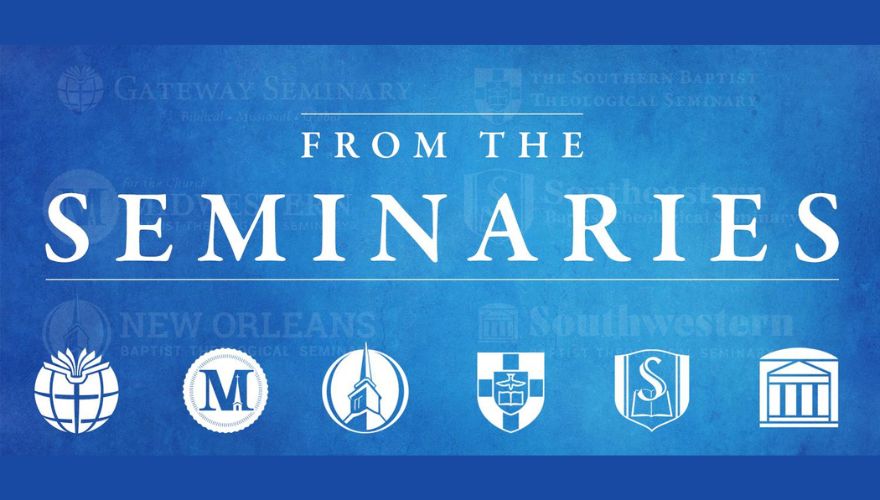
MBTS named ‘Best Christian Workplace’
By Brett Fredenberg/SBTS
Editor’s Note – The employee engagement survey conducted by Best Christian Workplaces was completely anonymous. Therefore, employee quotes used in this press release did not come from the employee surveys.
KANSAS CITY, Mo. (BP) – Midwestern Baptist Theological Seminary recently received certification as a “Best Christian Workplace” among Christian organizations in the United States.
During the summer of 2023, seminary employees completed anonymous employee engagement surveys, resulting in the recognition of a vibrant and healthy culture. This recognition is one of the first certifications among Southern Baptist entities.
“I was very pleased that Midwestern Seminary recently received our certification as a ‘Best Christian Workplace,’” said President Jason Allen. “It is incredibly important that Midwestern Seminary not only be a great place for students to be equipped for the Church, but that it would also be a great place to work. We desire all of our employees and faculty to flourish as they serve our students and constituents. The results of this process have revealed that to be the case.”
Midwestern Seminary’s certification as a “Best Christian Workplace” recognizes the seminary among institutions such as Classical Conversations, The Navigators, Bethlehem College and Seminary and The Summit Church.
Best Christian Workplaces, the Washington-based non-profit organization, is designed to equip and inspire Christians leaders to create flourishing workplaces. This non-profit organization, accredited by the Evangelical Council for Financial Accountability (ECFA), believes that Christian-led workplaces set the standard as the best, most effective places to work in the world.
“Everything we do is motivated by the conviction that more flourishing workplaces will ultimately attract more people to Jesus,” they say. “As a result, we work tirelessly to produce the most accurate data and effective implementation tools.”
Since 2002, more than 1,000 churches, ministries, and Christian-led businesses have measured the health of their workplace cultures with their employee engagement survey. As a result, they have the largest Christian database in the world, providing the most accurate and robust comparable date for Christian organizations.
The foundation of their employee engagement survey comes from eight scientifically backed culture drivers: 1) fantastic teams, 2) life-giving work, 3) outstanding talent, 4) uplifting growth, 5) rewarding compensations, 6) inspirational leadership, 7) sustainable strategy, and 8) healthy communication.
With missional alignment in furthering the Kingdom of God through institutional health, Midwestern Seminary was happy to partner with and learn from Best Christian Workplaces. The results were overwhelming.
Nearly 75% of Midwestern Seminary employees completed the engagement survey and the seminary ranked in the top category for institutional health and culture. See what employees say about working at Midwestern Seminary below in their own words.
Dena Morris, director of Human Resources, said, “Having come from the corporate world, the atmosphere and overall work environment of our campus was refreshing. It took some time to understanding the concept that co-workers could all come together for the greater good without self-advancement. Giving grace and understanding are the priority, not the exception. I can’t imagine leaving this institution to return to corporate America.”
NOBTS serve day teams see Gospel impact in city
By Marilyn Stewart/NOBTS
NEW ORLEANS (BP) – Serve Day at New Orleans Baptist Theological Seminary yielded two professions of faith and numerous Gospel conversations as more than 200 faculty, staff and student participants shared the Gospel and served across the city, Sept. 28.
The once-a-semester event mobilized evangelism teams into the French Quarter and New Orleans’ popular City Park. Prayer teams walked the perimeter of the parking lot of the grocery store next to the seminary and in surrounding neighborhoods. Others served at the Baptist Friendship House that cares for women and children in transition, picked up trash in yards and on the streets, and ministered to the homeless community and at a senior retirement home.
Thomas Strong, vice president of spiritual formation and student life, thanked participants at the closing debriefing and challenged them to make evangelism and service a part of their everyday lives.
“We can’t isolate this to once a semester,” Strong said. “It’s got to be our lives.”
Jamie Dew, president, urged participants also to remember the day’s impact when someday they serve in leadership positions.
“Just imagine the ripple effect for the kingdom and for the Gospel if a generation of people start leveraging their lives,” Dew said. “Wherever it is, wherever you’re going to be, always remember that followers of Jesus Christ go where He goes, do what He does, they are about what He’s about, and they love what He loves.”
Some have never heard
Kelby Beeson, a Leavell College student, shares the Gospel weekly in neighborhoods near the seminary with a team of students supervised by Preston Nix, professor of evangelism and evangelistic preaching. Frequently, they encounter people who claim a religious belief or background, Beeson said.
Serve Day was different.
“Today, we met someone … that had never heard the name of God or Jesus and had no religious background at all,” Beeson said. “It was a beautiful opportunity for the Gospel … that was the perfect segue to tell him of the hope I have in Christ.”
Bailee Dixon, a Leavell College student, told participants she saw God’s sovereignty at work. Dixon found an opening to sharing the Gospel when a woman told her she had made a delivery to the campus earlier that day.
“[The woman] said she knew she didn’t believe in Christ, but that she wanted to. Now she is a believer,” Dixon related at the debriefing. “We’re going to connect her to Gentilly Baptist and Dr. Taylor [pastor and missions professor] so she can connect and get plugged into a church.”
‘The Gospel changes neighborhoods’
At the grocery store next door to the seminary, Mark Johnson, assistant professor of evangelism and pastoral ministry, led teams in prayer walking and sharing the Gospel in the parking lot. Johnson drops into store daily to befriend and minister to employees. On Serve Day, Johnson’s conversation with one woman helped clarify her beliefs and led to her profession of faith.
Other participants told of Gospel conversations, prayers with those and need, and opened doors for follow-up as they left contact information with those they encountered.
SBTS missions conference asks 4 questions for missions in a digital age
By Travis Hearne/SBTS
LOUISVILLE, Ky. (BP) – While evolving technology propels the world to new and digital frontiers, Southern Baptist Theological Seminary confronted the unique questions of missions in a technological age at Future Shock, the 2023 Missions Conference hosted by the Bevin Center for Missions and Mobilization, on Sept. 15. The event brought together experts on missions and technology to tackle the pressing challenges of modern digital tools and platforms reshaping the global missions landscape.
“The digital world is clearly a world in need of the Gospel,” said J. Keith McKinley, professor of missions at Southern Seminary and director of the Bevin Center. “But that world is fraught with dangers and theological/ecclesiological landmines. The dangers include various addictions and physiological changes in our brains, as well as exposure to all manner of evil that I do not care to elucidate. Theological issues of personhood and embodiment are especially critical to our missiology. Whereas most would agree that we should take the Gospel into the digital world, things quickly get more complicated when it comes to discipleship, community, and being the church in a virtual realm. This is why we sensed the need to start talking about these issues and the questions we must be thinking about concerning missions in the digital world.”
Jason Thacker, professor at Boyce College, author of Following Jesus in a Digital Age (B&H), and editor of The Digital Public Square: Christian Ethics in a Technological Society (B&H Academic), pointed to four fundamental questions Christians should consider to begin thinking about the intersection of faith, technology, and global outreach.
- What is technology?
When Thacker asks students this question, they often respond with examples of technology – but it’s a more profound philosophical question. “It’s not a trick question,” Thacker said. “But it’s trying to get to the heart of what these examples of technologies are. Is it merely a tool?” There are two main ways to understand technology, according to Thacker: as a tool and as a formative influence. “We are morally responsible for how we use these tools but technology is always working to form us and our world by driving everything in life to the goal of efficiency.”


